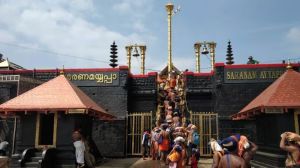Off the beaten track, the race for 2012
The five cities seeking to host the 2012 Olympics made their media pitch in Athens earlier this week. Paris is seen as the frontrunner, the ...

The five cities seeking to host the 2012 Olympics made their media pitch in Athens earlier this week. Paris is seen as the frontrunner, the best networked city in the IOA labyrinth. London is, obviously, the British media8217;s self-declared favourite, its bid panel headed by Sebastian Coe and only somewhat hampered by the series of romantic scandals the former athlete is enmeshed in. His current girlfriend is former cricketer Mike Smith8217;s daughter.
New York is the 8216;8216;emotional favourite8217;8217;, positioning the 2012 Games as the culmination of the post-9/11 rebuilding and healing process. Moscow is the also-ran and Madrid the dark horse.
The London presentation included a smart opening speech by Coe and a video message from Tony Blair, attempting to look appropriate for the occasion in a blue Adidas T-shirt. New York used John Lennon8217;s Imagine as the theme song for its proposal.
Moscow was the ceremony8217;s Calamity Jane. Its video ran twice. The first time the sound was heard but not the background music. The second time the music was heard but not the sound.
Paying heed to history
Among the many cultural events being organised to coincide with the Games is an opera commissioned by the government on the life of Spiridon 8216;8216;Spiros8217;8217; Louis. An unknown shepherd who stunned the world and saved Greek pride by winning the marathon in 1896, Louis is still revered in a manner difficult to understand if you8217;re an outsider.
Unlike, say, Lala Amarnath 8212; who hit India8217;s first Test hundred 8212; he is remembered not just as a good sportsman, but a national icon.
Indeed, the ancient Olympics and the history of the times are part of contemporary Greece8217;s collective memory more than, say, Emperor Ashoka is relevant to call-centre India. Even the opening ceremony, which was in some respects speed history of Greece, began with Hercules and legend, moved to the glory of Alexander and Aristotle and the rest of the classics crew, travelled further to the Byzantine empire 8212; and then jumped to the Greek revolution of 1821.
The period between the fall of Constantinople 8212; to this day, the seat of the Greek Orthodox Church 8212; in 1453 and the 19th century is the 8216;8216;lost history8217;8217; of Greece, the 8216;8216;dark age8217;8217; of Ottoman rule. There was no reference to it at the opening ceremony.
As such, the revival of the Olympics in 1896 and Spiridon Louis8217;s victory were not just the stuff of sport. For Greeks, they were a huge statement on national identity.
- 01
- 02
- 03
- 04
- 05































